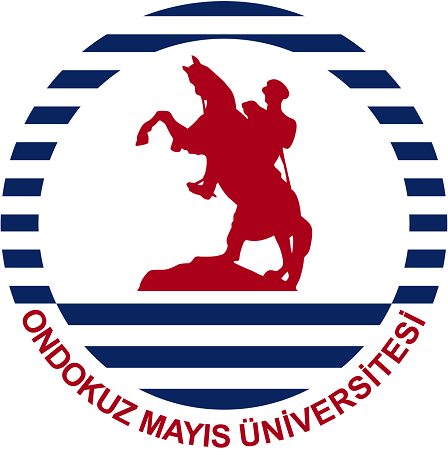TÜRK DİLİ VE EDEBİYATI PROGRAMI ÖĞRENME ÇIKTILARI (LİSANS)
- Türkçenin geçmişte ve günümüzde gözlemlenebilen dil özellikleri hakkında bilgi sahibi olur, çıkarımlar yapar; Türkçeyi sözlü ve yazılı olarak güzel ve doğru kullanır.
- Tarihî ve çağdaş Türk lehçelerinin dönemleri, eserleri, şahsiyetleri hakkında temel düzeyde bilgi sahibi olur.
- Dil bilimi ve dil bilgisi yöntemlerinden hareketle Türk dili ile ilgili konularda değerlendirme yapabilir, sorunlara çözüm önerileri üretir.
- Türk halk edebiyatı kapsamında değerlendirilen konuları, edebî şahsiyetleri ve eserlerini tanır.
- Halk bilimi (folklor) ve halk edebiyatı alanlarında derleme ve araştırma yapar.
- Toplumda yaşayan/yaşatılan gelenek-görenek, inanç, âdet ve uygulamalar ile bunların kökenleri hakkında bilgi sahibi olur.
- Başlangıcından günümüze kadar Türk edebiyatının tarihî gelişimi, genel yapısı, genel özellikleri, kaynakları, kronolojisi, temsilcileri, önemli eserleri, vezinleri ve nazım şekilleri hakkında bilgi ve deneyim sahibi olur.
- Türk Edebiyatı ürünlerini kuran estetik bakış açısına sahip olur.
- İslâmiyet öncesi Türk edebiyatı, klasik Türk edebiyatı, Türk halk edebiyatı ile Tanzimat, Servet-i Fünûn, Fecr-i Âtî, Millî Edebiyat, Cumhuriyet dönemlerindeki edebî gelişim ve değişimleri bilir, kıyaslar, izah eder; çağın getirdiği yeni dil ve edebiyat sorunları hakkında farkındalık elde eder.
- Türk Edebiyatı’nda üretilen edebî eserleri tür, yapı, dil, tema, edebî akım, edebî kuram, zihniyet, kültür, felsefe, sosyoloji, psikoloji, tarih, din gibi unsurlar açısından disiplinlerarası bir yaklaşımla tahlil eder, biçim ve içerik farklılaşmasını görür ve eleştirel olarak değerlendirir.
- Türk Dili ve Edebiyatı’nın bütün bilim dallarında öğrendiklerini bilimsel ilkeler doğrultusunda ve felsefe/tarih/sosyoloji/psikoloji vd. sosyal/insanî bilimlerden yararlanarak doğru ve yeterli anlar, inceler; karşılaştığı dil ve edebiyat problemleri için disiplinlerarası yaklaşımla çözümler üretir.
- Öğrendiği dil ve edebiyat bilgilerini kamu ve özel sektördeki tüm kurumlarda eğitim-öğretim amaçları doğrultusunda öğretir. Medya sektöründe (basılı ve görsel) metinlerin ana dilin doğru kullanılmasına dair redaktörlük yapar. Öğretici sertifikasını alması koşuluyla, yabancılara Türkçe öğretmenliği yapar.
LEARNING OUTCOMES OF TURKISH LANGUAGE AND LITERATURE PROGRAM
- Has knowledge about the observable language features of Turkish in the past and today, makes inferences; uses Turkish verbally and in writing in a good and appropriate way.
- Has basic knowledge about the periods, works and figures regarding the old and contemporary Turkish dialects.
- Based on linguistics and grammar methods, he can make evaluations about issues related toTurkish language and generate solutions to problems.
- Recognizes the subjects, literary figures and their works in Turkish folk literature.
- Makes compilations and conduct researches in the fields of folklore and folk literature.
- Has knowledge about the traditions, customs, beliefs and other practices that continue to exist in the community and their origins.
- Has knowledge and experience about the historical development, general structure, general features, sources, chronology, representatives, important works, prosodies and verse forms in Turkish literature from the beginning to the present day.
- Has an aesthetic perspective which shaped Turkish Literary works.
- Knows, the pre-Islamic Turkish literature, classical Turkish literature, Turkish folk literature, and Tanzimat, Servet-i Fünûn, Fajr-i Âtî, National Literature, literary developments and changes during Republican era, and explains, compares and contrasts them; gains awareness of new language and literature problems caused by the age.
- Analyze the literary works produced in Turkish Literature with an interdisciplinary approach in terms of genre, structure, language, theme, literary developments and movements, literary theory, mentality, culture, philosophy, sociology, psychology, history, religion, and sees differences in forms and contents and evaluates them critically.
- In line with the scientific principles, making use of philosophy / history / sociology / psychology etc. and social science he/she understands correctly and sufficietly, and examines what he/she has learned in all branches of Turkish Language and Literature; produces solutions for language and literature problems that he/she faces, adopting an interdiscplinary approach.
- Teaches the language and literature knowledge learned in all institutions in the public and private sectors in accordance with the educational purposes. He/she can be an editor in charge of checking the correct use of the mother tongue in the texts in the media sector (printed and visual). He/she can be a teacher of Turkish to teach Turkish to foreigners provided that he receives teaching certificate.

